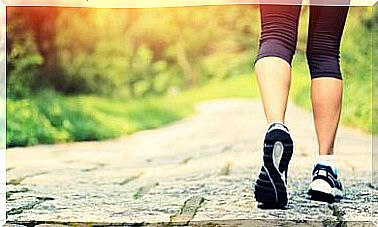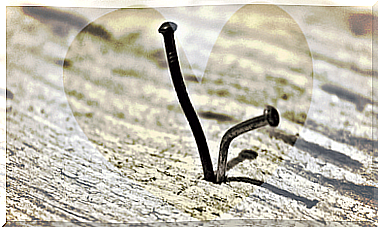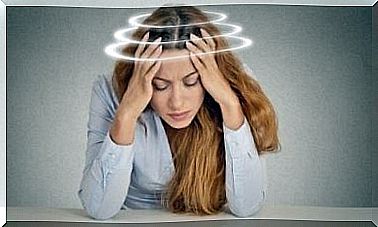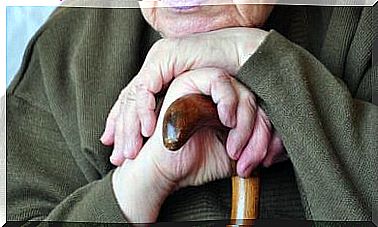The Importance Of Sunlight During The Quarantine
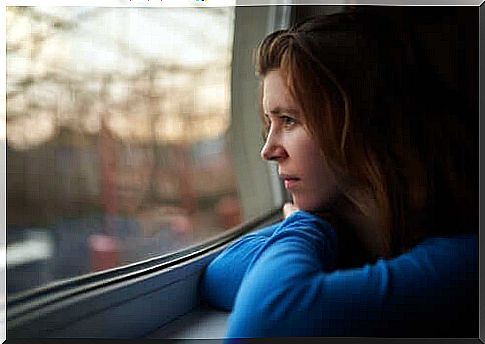
Discover the importance of sunlight for your life in this article. Lack of sunlight during quarantine is a reality that has affected several households. The current pandemic has arrived in a spring that is slowly disappearing.
The days are longer and lighter, the sun is warmer, yet millions of people around the world are coping with quarantine without direct contact with anything essential to humans.
Living in small apartments where the sun cannot shine in is an everyday problem for many people. There are also ground floor flats in narrow streets in the cities, where it is difficult to know whether it is morning or afternoon. These factors can have a certain influence on health, but especially on our psychological well-being.
We are homeothermic. In other words, we depend on sunlight to regulate our temperature. We also depend on it to balance our sleep cycles and it is necessary for our bodies to perform various metabolic tasks. Feeling the heat also has an indispensable and powerful effect on our mental health.

The importance of sunlight during quarantine for your well-being
Michael Terman (link in English) is a well-known psychiatrist and expert in chronotherapy (a treatment to help regulate our sleep phases).
Something he has been able to see during his career is how changes in light during different seasons or variations in light in different buildings affect human behavior. In the absence of sunlight, people suffer from sleep and mood disorders as well as weight changes.
Many of us are not aware of the relevance of this factor in our lives. We live in a society where we are used to doing many of the activities indoors, under artificial light.
Most of us work indoors. We get up at sunrise and don’t come home until dusk. Once at home, we still have contact with our electronic devices, with computers, mobile phones, televisions, and so on.
The so-called blue light emitted by these devices alters our circadian rhythm, reducing the production of melatonin.
In the current context of the pandemic and with quarantine as a preventive measure to contain contamination, a new problem arises. Lack of sunlight during quarantine in many homes can take its toll. So let’s take a look at the importance of sunlight and what measures to take.
Deficiency of vitamin D
According to a study (link in English) conducted by Dr. Robert Nair of the University of California, nearly 50% of the world’s population is probably deficient in vitamin D. One of the main causes is lack of outdoor activity and insufficient exposure to sunlight.
Thus, a lack of sunlight during quarantine can exacerbate this fact. This can lead to problems regulating calcium metabolism and can weaken your immune system. You should therefore try to be exposed to sunlight for at least 20 minutes a day.
If you’re still not allowed to leave your home, try taking advantage of a patio, window, or part of the house that does get some natural light. In addition, don’t forget that there are other sources of vitamin D, such as:
- Dairy products
- Eggs
- Fatty fish

Sleep problems associated with lack of sunlight during quarantine
Living in a house or apartment with a lack of natural light can also affect your sleep. The changes due to the quarantine can therefore cause insomnia, hypersomnia or a change in sleeping habits.
For example, you start taking long naps and then when it’s bedtime, you’re not tired. As far as possible, you should follow these guidelines:
- Set up routines to better manage your time. If you always follow the same habits and routines and are disciplined, you will notice the difference in your life. For example, do your most intense activities, such as telecommuting, cleaning up the house or even exercising in the morning hours. In the afternoon you do more relaxing activities, such as practicing a hobby, reading or watching television.
- It is also essential to get up and go to bed at the same time every day. If you take a nap in between, keep it short, about 20 to 25 minutes.
- Another goal is to make sure your brain can easily distinguish day and night. Find a natural light source and take advantage of it for about 20 minutes. This can be of great benefit to you.
The importance of sunlight on your mental health and mood
There is one aspect that you really shouldn’t ignore. Your mental health can also be affected if you are quarantined in a small space with little sunlight.
You have to activate your psychological defenses, have resources and above all get support from others. Living somewhere with little or no natural light will only add to your discouragement. As a summary and conclusion, let’s share with you some tips to keep in mind:
- We say it again: it is essential that you are exposed to natural sunlight for at least 20 minutes every day.
- Avoid leaving your house in the dark. Use economical lamps that create a pleasant atmosphere.
- Again, we also emphasize the need for set routines to organize your time.
- Stay in touch with others through messaging, phone and video calls, and more.
- Perform creative tasks to train your brain, disconnect yourself and find time to connect with the here and now.
- Exercise also helps you produce endorphins, serotonin and dopamine, neurotransmitters that are essential to improve our mood.
- Look to the horizon and set some goals. Accept your negative emotions, which may come from time to time. Do not forget your goals and make sure that your hopes and your dreams never fade.
Ask for help if needed
In short, quarantine is not easy for anyone. However, some people are in more vulnerable situations than others. Keep this in mind and follow strategies to improve your quality of life under these conditions. And remember, don’t hesitate to ask for help if you need it.
